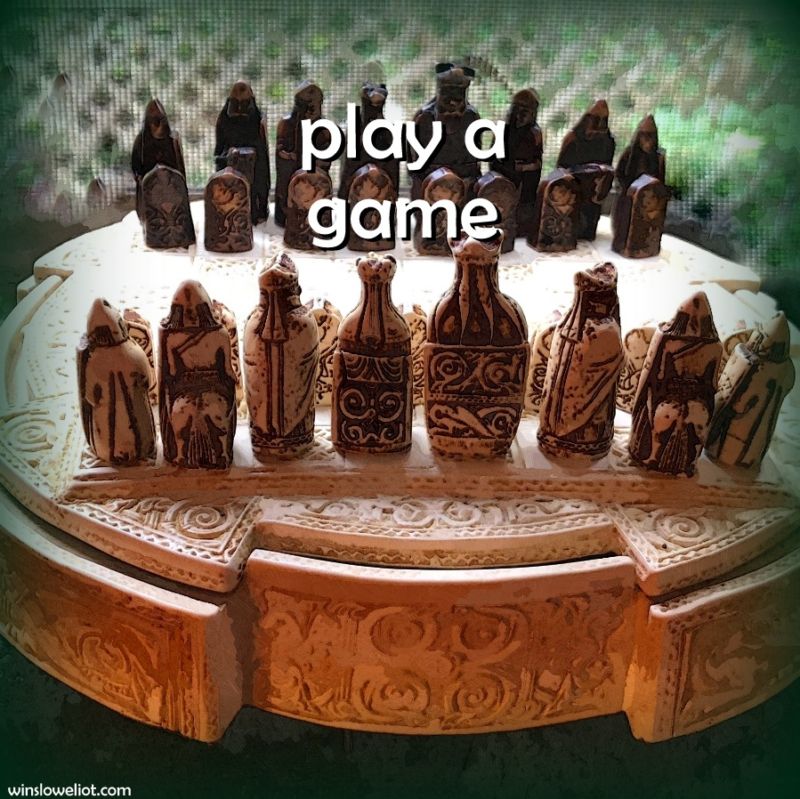
Stillness 9-18: Many games evolved from wisdom schools and were often created as teaching tools for young initiates. They were also used as hiding places for esoteric teachings during times of war and strife, when entire civilizations were captured and their powerful spiritual teachers silenced. So whether you’re enjoying playing cards or mah-jong, or completing puzzles involving numbers (sudoku) or words (crosswords), be conscious that it’s much more interesting than “just” playing a game.
Chess is a particularly gratifying game because it’s so esoteric. Before us is spread an entire world of our human existence: the dark and the light, conscious and unconscious. The kings represent the spirit (which is why they can never be captured). The queens represent our mind/intuition (which is why she can move in all directions). The bishops are our emotions, the knights our energy or vital essence, the castles or rooks are our physical bodies. You can feel these aspects of the pieces through their sacred geometrical movements: emotions move on a diagonal slant, like a triangle. Our physicality is square, solid, material, so the rooks can only move in straight lines. Our vitality, or our energy, moves in hops, skips, and jumps.
And the pawns? They represent the eight parts of the soul that the Ancient Egyptians describe as:
- Khet (physical)
- Sah (spiritual body)
- Ib (heart)
- Ka (vital essence)
- Ba (personality)
- Shut (shadow)
- Sekhem (form)
- Ren (name)
No one knows the origin of chess. So far the Ethiopian game of Senterej seems to be one of the oldest forms of the game. Growing up I used to play with my father—in fact, it was an evening ritual between us during much of my childhood. I kept up the tradition with my son when he was young, and I continue to play myself most evenings. The way I play chess now is to take out my chess board, set up the pieces, and begin. I have a friendly little chess app on my phone that tells me how my mythical opponent wants to move, and I move their piece for them. Then I focus on the board again and take pleasure in deciding what I’d like to do next with my pieces.
Chess and all games are serious matters, whether they’re distractions or they make us feel smarter, but the reason I really like playing games is that they’re relaxing and purposeful without having any purpose at all. Play reminds me to take myself and life much more lightly than I do, which perhaps is the greatest wisdom there is.
